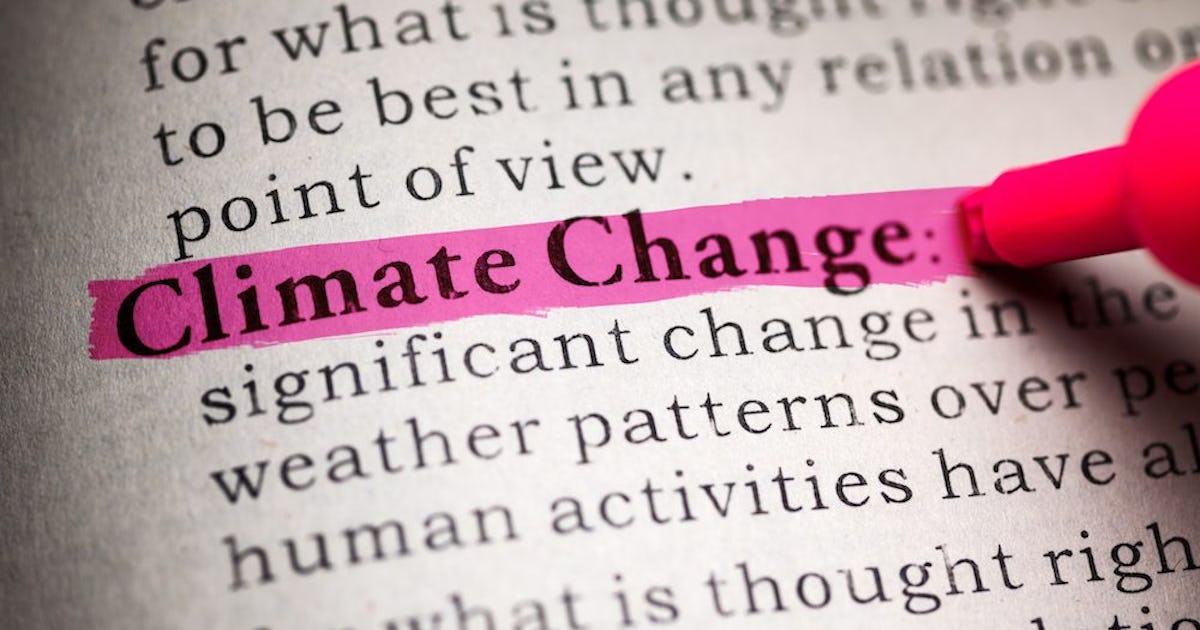
Climate change has become an increasingly common topic of conversation, and the Oxford Dictionary knows it. In a special update issued in advance of the United Nations Climate Change Conference (COP26) set to be held later this month in Glasgow, Scotland, the principal historical dictionary of the English language has added a handful of climate- and sustainability-related terms to its official pages.
There are more than 48 new entries and sub-entries, as well as 28 new tenses and other additions, all related to conversations about the climate. Terms like “CO2” have been added, as well as “climate crisis,” which was added as a sub-entry for climate and defined as “the increasing risk of hazardous, irreversible changes to the climate, resulting from global warming; the environmental crisis arising from this risk.”
The new terms are reflective of the moment. Additions like “climate action” and “climate strike” help to provide language for how activists, environmentalists, and many others have responded to the increasingly dire crisis. Meanwhile, language like “global heating” (“an increase in the average temperature of the Earth's atmosphere, waters, and land surface; the long-term gradual temperature increase occurring in the wake of the Industrial Revolution”) and “extreme weather” (“weather that is very harsh, unseasonal, or atypical for a particular region, (now) especially when attributed to the effects of climate change”) give us the ability to clearly name what is happening to the planet. The fact that the definitions do not shy away from connecting the dots to climate change adds a sense of certainty: This is happening, and it is because of climate change.
Oxford also took on new terms that speak to the aspirations that we should collectively have if we want to keep the planet in a livable state. The pages of the dictionary will now include “decarbonization,” defined as “the action or process of reducing or eliminating the fossil fuel use of an economy, business sector, etc., so as to reduce carbon dioxide emissions.” Likewise, the long-term goal of net-zero emissions now exists in the dictionary as a sub-entry of “net.” The accompanying definition states net zero is “an overall balance between the amount of carbon dioxide and other greenhouse gases produced and the amount removed from the atmosphere.”
Of course, while Oxford’s new entries recognize the reality of climate change, they also recognize the skeptics. “Climate denial” has made it into the dictionary, too, defined as “rejection of the idea (or the evidence) that climate change caused by human activity is occurring, or that it represents a significant threat to human and environmental welfare.”
The full list of Oxford’s new additions, along with the accompanying definitions, can be found here. Now we just have to hope that terms like “climate disaster” and “mass extinction” don’t end up with new entries in the near future.
No comments:
Post a Comment